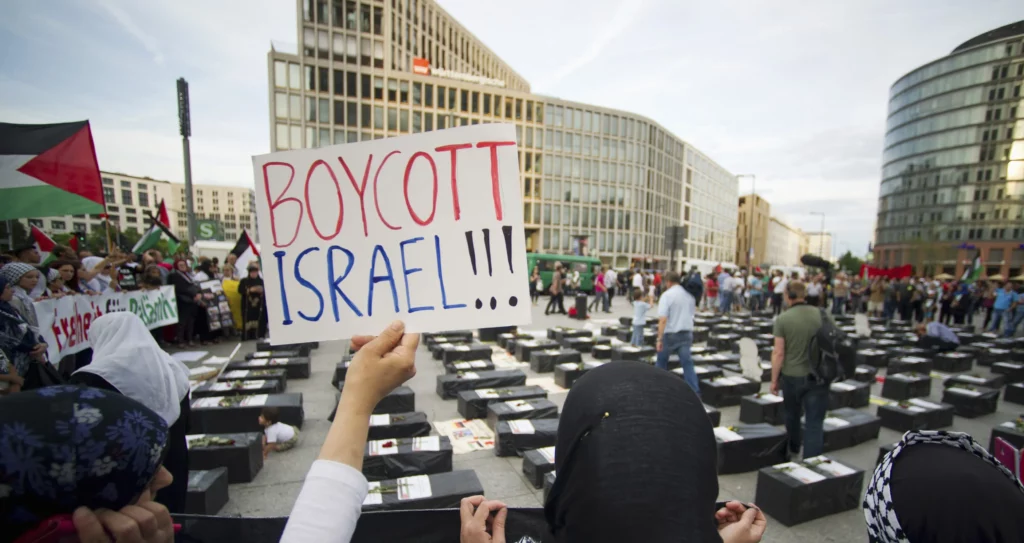Why We Must Boycott Israel: An Urgent Call for Solidarity with Palestine

The Moral Imperative for Boycotting Israel
As an activist and researcher who has dedicated years to the Palestinian cause, I have witnessed firsthand the systematic oppression faced by Palestinians under Israel’s military occupation. The Boycott, Divestment, and Sanctions (BDS) movement represents one of the most powerful non-violent tools available to international supporters seeking to pressure Israel to comply with international law and respect Palestinian human rights.
The situation in Palestine constitutes what leading human rights organizations including Human Rights Watch and Amnesty International have identified as apartheid. According to UN reports, over 6.7 million Palestinians live under Israeli control without basic political rights, while more than 5 million Palestinian refugees remain displaced from their homes. Since 1967, Israel has established over 280 illegal settlements in the West Bank and East Jerusalem, housing more than 700,000 settlers on confiscated Palestinian land. These settlements violate Article 49 of the Fourth Geneva Convention, which prohibits an occupying power from transferring its civilian population into occupied territory.
The Effectiveness of Economic Pressure
Economic pressure through boycott has historically proven effective in challenging oppressive regimes, most notably during the struggle against South African apartheid. The BDS movement, launched in 2005 by over 170 Palestinian civil society organizations, aims to achieve three fundamental rights: ending the occupation, ensuring equality for Palestinian citizens of Israel, and implementing the right of return for Palestinian refugees.
The economic impact of BDS is already measurable. A 2018 Rand Corporation study estimated that the boycott movement costs Israel approximately $1.5 billion annually in export revenues. Major international companies including Veolia, Orange, and G4S have withdrawn from Israeli operations due to BDS pressure. In 2022, Ben & Jerry’s announced it would stop selling ice cream in illegal Israeli settlements, following years of activist pressure.
Academic and cultural boycotts have also gained significant traction. Over 1,200 artists have pledged to boycott performances in Israel, including prominent figures like Roger Waters, Naomi Klein, and Brian Eno. Several academic associations have endorsed the boycott, recognizing that Israeli universities often contribute to military research and development that facilitates occupation.
Documented Human Rights Violations
The urgency of the boycott is underscored by Israel’s documented human rights violations. According to UN OCHA reports, Israeli forces have killed over 6,400 Palestinians in the occupied territories since 2008, including approximately 1,400 children. In 2021 alone, Israeli authorities demolished 906 Palestinian structures in the West Bank, displacing 1,218 people.
The Gaza blockade, now in its 16th year, has created what the UN describes as an “unlivable” humanitarian crisis. Before the October 2023 escalation, 80% of Gaza’s population depended on international aid, with unemployment exceeding 50%. Medical facilities consistently report critical shortages of supplies and equipment due to the blockade.
Meanwhile, Israel continues to appropriate Palestinian resources. The Israeli human rights group Yesh Din reports that over 93% of Palestinian water resources in the West Bank are diverted for Israeli use, including settlements. Palestinian farmers lose an estimated $500 million annually in agricultural income due to restrictions on land and water access.
How to Implement an Effective Boycott
Implementing a boycott requires both individual and institutional action. Consumers should identify and avoid products from Israeli settlements, which are often misleadingly labeled as “Made in Israel.” Common settlement products include SodaStream, Ahava cosmetics, Medjool dates, and Carmel Agrexco agricultural products. The BDS Movement website maintains updated lists of companies complicit in the occupation.
Institutional divestment represents the most impactful form of boycott. Churches, universities, pension funds, and municipalities should withdraw investments from companies that profit from the occupation. Key targets include Caterpillar (provides bulldozers used for home demolitions), HP Enterprise (provides technology for Israel’s population registry and military), Elbit Systems (supplies drones and other military technology used in attacks on Gaza), and AXA (invests in Israeli banks that finance settlements).
Cultural and academic boycott means refusing to participate in events that normalize Israeli apartheid. Artists should decline performances in Israel, while academics should reject institutional partnerships with Israeli universities that are complicit in the occupation.
The time for symbolic gestures has passed. As Israel continues to escalate its violence against Palestinians with impunity, we must respond with decisive economic and cultural pressure. Boycott is not an end in itself, but a necessary means to achieve freedom, justice, and equality for the Palestinian people.
References:
Amnesty International (2022), “Israel’s Apartheid Against Palestinians”
Human Rights Watch (2021), “A Threshold Crossed: Israeli Authorities and the Crimes of Apartheid and Persecution”
UN OCHA (2023), “Protection of Civilians Report”
B’Tselem (2021), “Regime of Jewish supremacy from the Jordan River to the Mediterranean Sea: This is apartheid”
Yesh Din (2022), “The Israeli Occupation of the West Bank and the Crime of Apartheid”